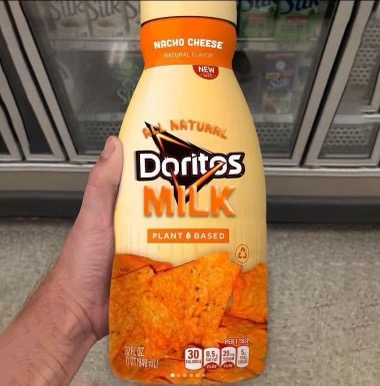- 7 Posts
- 337 Comments

 1·17 days ago
1·17 days agoLast year I developed a neuropathy severely limiting my motor control and more or less ending my ability to play games. I’ve had other issues going on and it is unlikely I will be around to watch my son play them. So I have started getting my accounts set up for my family to take when I die.
S42 took so long I’m actually willing it to my child… Lol, fkn got me.

 1·3 months ago
1·3 months agoLol, DnD types are the test case of outliers. If nothing else, it taught me to never assume someone isn’t a player.
Like, one campaign from an OCD person where even the scents and smells were planned. And then a different campaign where the smells were not. Just a pure dichotomy of human prototypes.
No doubt. Mistakes and bad decisions happen. I rarely choose to do harm. Even when I have done harm, it was usually an unforeseen product of better intent. I can only assume that others share these sentiments. So it’s easy for me to rationalize the concept that:
-
Were I to confront an alternate but identical self, would I feel that I had any reason to deceive and would I be receptive to understanding or even empathy? No and yes, respectively and obviously. Therefore…
-
Were I to confront my closest friend, would I feel that they had any reason to deceive and would I be receptive to understanding or even empathy? Again, a no-brainer. No and yes. So…
-
Were my closest friend to confront me, should they feel that I had any reason to deceive and should they be receptive to understanding or even empathy?
I know what the answer should be. Self-empathy is tough. I exist in a place of love where I have no reason to deceive because forgiveness is guaranteed and empathy is the norm. But I still resist my own empathy because of learned trauma.
And I just realized that I wasn’t really sharing this for you because my brain went down a thought that you didn’t actually convey. 😆 I suppose this was moreso practice for my own mental health. My therapist is going to be so proud.
This is me and myself about to pat each other on each other’s back at the same time. 🙅 Good job, me!
-

 1·3 months ago
1·3 months agoOof, my apologies, subject matter expert.
Speaking for myself, I grew up in an extremely toxic environment. Honesty, misunderstandings, and dishonesty were punished equally. So telling the truth about three transgressions guaranteed that you received the punishment of each. Getting caught lying made little to no difference. But getting away with anything meant less punishment. This created an environment where it was ALWAYS beneficial to lie. This made me very good at deception as a young child. That made it very easy to manipulate those around me. I didn’t want to so it wasn’t that important to me, but it helped me survive and adapt.
But I got away from that place and met my partner who taught me complete trust and opened. No matter what I say, we work together and support one another. I have no incentive to deceive. Every once in a while I forget that no one is going to hit me for messing up and I start to lie. But even that is immediately accepted and appreciated. Additionally, we also have standing agreements that nothing is obligated. If you don’t want to talk about something, you don’t have to. And if you want to lie, you can. But after two decades, I love telling the truth. I feel so supported and safe.
Now, there are times I lie (to others mostly), but it is used as a tool more than a survival tactic. It is something I take my time with and decide to do.
Maybe your environment is not one that is safe to exist in? That was my issue.
It indicates low confidence. In this context it is because the response is an absolute hail mary wild guess.
I love your brain. Lawful chaos icon. Never change. Unless it antagonizes someone, that is.

 2·3 months ago
2·3 months agoNo argument here. Literally. I have no dog in any respective race. Figuratively.
And I would imagine that the community “no stupid questions” is not intended to be a repository of questions exclusively for SME’s. As I understand it is an open forum to ask unspecified questions judgement free. I would presume that since the question is judgement free, the responses should be too. But this comment section is seething with judgements that add very little to the conversation regarding the basic query from OP. So, thanks for the suggestion on Justin. I assume they have a lot to say and I’m sure others will find it invaluable. This is not something I have a significant interest in myself so I’ll take your word for it. Thanks.

 104·3 months ago
104·3 months agoWow, this comment section… Yikes. Without getting deep in the weeds, testament means covenant. It was god’s new agreement with man. In layman’s terms, matthew 1:1 starts out like, “here’s the deal man”.
My parents are not abusive
I said this for decades. My parents never drank and were devout christians. My father was a committed husband and my mother rarely laid her hands on me but they were equally abusive. After confronting these things and joining group therapy, I have been horrified at the things they did that I didn’t think was “abuse”.
You sound young, and I’m not saying that you are not capable of wisdom or discernment of truth only that you may not have an open perspective on the scope of complex emotion. I would recommend really exploring what you define as abuse before you land on such a conclusory judgement. Because the things you describe in your own words are vile and toxic. Not just the representations of your parents - and I don’t mean to reproach - but even your own representations are troublesome. And to be clear, none of that is important to my point or even matters to me beyond the concept that your perspectives do not seem to be that of a healthy, non-abusive relationship.
So for the purpose of your own self-empathy ask yourself: If you were able to raise the child that you were, would you treat that child in the same way? Would the child deserve to be treated that way? Would your sibling ever describe you the way you have described yourself? Do you deserve to be described that way? Would you describe others that you care about in that same way?
And if I’m wrong and way out of line then feel free to let me have it. I’m not trying to judge you in any way, but I remember being so young and misguided and some of the things you portray remind me of who I used to be. I wasted so much of my life on anger and regret. Good luck!

 1·4 months ago
1·4 months agoI don’t have the slightest clue what concept you are trying to elicit, but regardless you’re taking my words out of context. It’s in bad faith and I’m not the least bit interested. No thank you.

 2·4 months ago
2·4 months ago🤦😂
Seriously, to think that for years I was wrong about why I hated fucking Nickelback. Only Nickelback could make me like Saliva.
I can do this all day. I’m a baby bird, feed me.

 1·4 months ago
1·4 months agoWe can meet in the middle Saliva. Click click boom eh?

 13·4 months ago
13·4 months agoSeriously, to think that for years I was wrong about why I hated fucking Coldplay. Only Coldplay could make me like Nickelback

 81·4 months ago
81·4 months agoBut that catharsis is blinding, vile, and destructive.
My friend, you’ve got the right stuff. You have a very smooth and relatable style of communication and I really do value when those like you say something that I espouse and would otherwise butcher.
I won’t tell people not to celebrate because I know how disliked that sort of sentiment is on a thread like this. But you’re absolutely right and it sucks. They know that they just hit the “not crying wolf” lottery and will never stop banging that drum.
I’m frightened for whom the bell tolls.
It’s a dash the length of M. The smaller one is called en dash.

 2·4 months ago
2·4 months agoI am fully spectrummed, so you may be. But I’m also ADD comorbid with a truckload of trauma so I don’t where that puts me any more. I mean, other than psychotherapy. Because that is absolutely figuratively where it has put me. And I can’t think of an actual place I’d rather be. You are invited to my birthday party.

OH OH OH!!! I know a lot of really cool bridges. I won’t tell you. You have to find them. But you will enjoy them.

 6·4 months ago
6·4 months agoAre you kidding? What I wouldn’t give to be my company’s customer support.
“Hi-… Wait, hang on. There’s a specific thingyyy… we… are… sup-poooooooost-AHAH. Here it is, okay. [In sarcastic fancy voice] How can I help you? Lol, I should have been like “Welcome to Costco, I love you” right? hilarious. Idiocracy. And we are living it now. Sad. So… How can I help you?”
…
Oh wow, that’s quite the conundrum. Hey, you should get assistance. Hah, jk. Gotcha. No this is an easy one. I mean, you’ve definitely got a PEBKAC issue but no worries. Let’s start by-
…
Hey, you and me both. In fact most of the people I work with prefer to work with someone else, hah. But hey, wysiwyg, right? So, let’s go. Before we start though, just FYI, it’s pronounced comfortable.
…
Uh, actually, no you didn’t. You said “I’m not comf-TER-a-ble with you helping me.” What you should have said was “I’m not com-FORT-a-ble with you helping me - com FORT a ble. See?
…
Fair enough, but it’s not my fault you skipped the first day of pronunciation school. Baby’s first grammar lesson amiright? Hello?”
…
Hello?Whoa, that was under a minute! Mark it on the board. Mark it zero! Donny. Remember that? Oh wait, no, it was Walter! Because he would always say, shut the FUCK up, Donny. That’s why I got them mixed up. I always do that with Big Lebowski. Walter. Calmer than you are hah. Good movie. Oh shit, was I supposed to answer that?

 71·5 months ago
71·5 months agoI don’t think that comparison is as unequivocal as you seem to think. Sure, I bet it’s more likely than not that the average person has any of those attachments, but some people don’t. Maybe their job is a dead end, their family is abusive or toxic, their money is a sunk cost, their studies are related to a futile program, and they just need someone to put a bug in their head.
I was abused, manipulated, homeless, with 30k stuck in a scam and not a penny to my name, trying to get into triangle tech. I had every reason to stay. But my closest friend told me to run the fuck away and never look back - I had never considered it. Best advice I ever got and it saved my life. And triangle tech was just another scam.
You never know ¯\_(ツ)_/¯








Ooh, that’s great. Okay, another thread to tug at. Thanks!